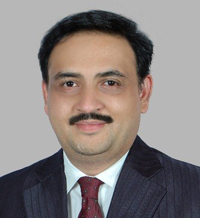Why militant fundamentalism is post-modern, not orthodox
Research Fellow, IDSA, Dr Adil Rasheed’s article on militant fundamentalism, titled ‘Why militant fundamentalism is post-modern,
not orthodox," was published in the Al-Arabiya TV channel website on September 28, 2018.
The article posits that transnational Jihadism may have more in common with Neo-Marxist postmodernism than with orthodox Islam.
- Published: 28 September, 2018










